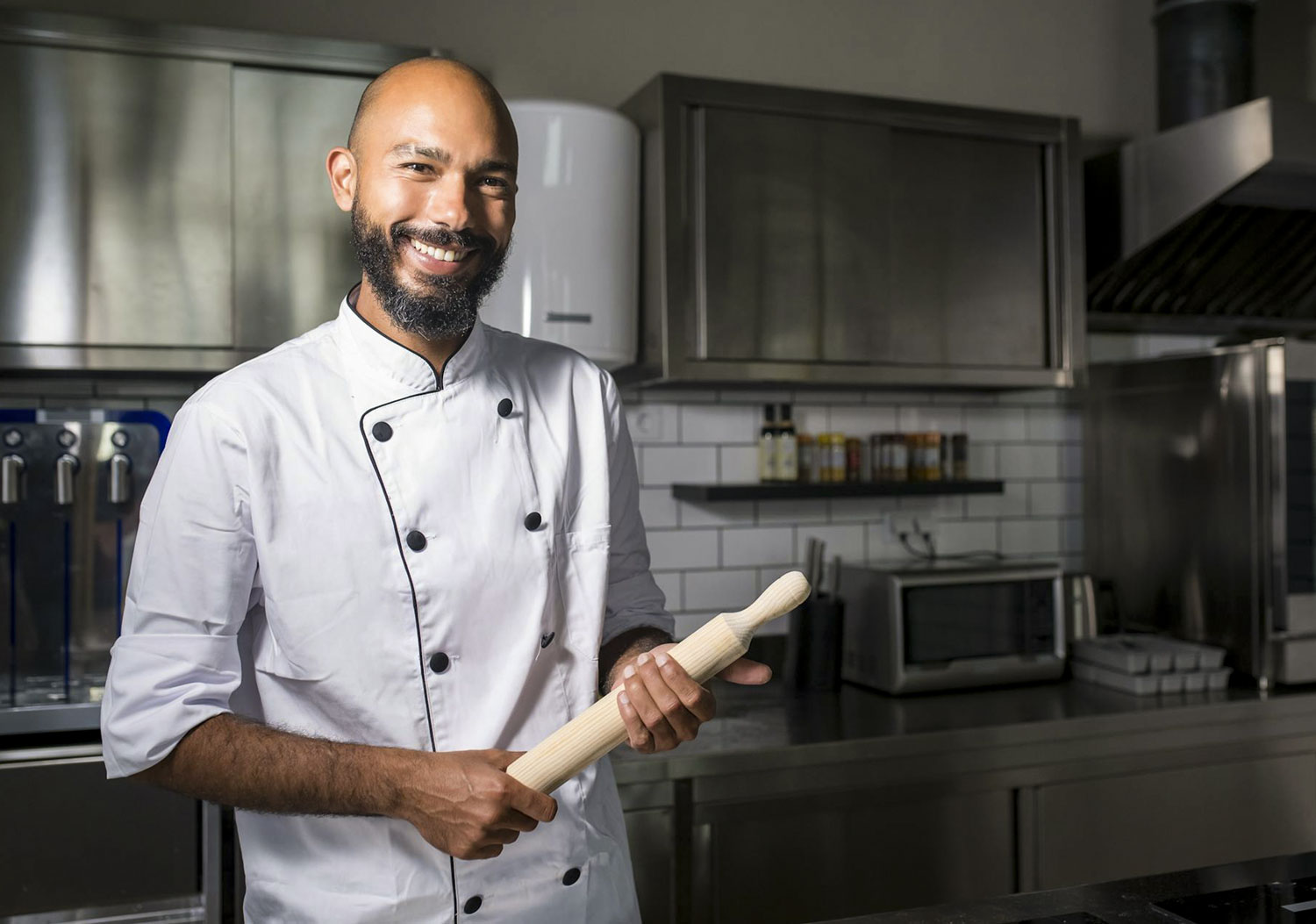Being a professional chef is both challenging and fulfilling. It involves a range of important tasks that keep the culinary world running smoothly. Chefs not only create tasty dishes but also manage the kitchen, ensure food safety, and keep the team happy.
In Australia, the chef career is booming. It’s a great choice for those who love cooking and want to bring new ideas to the table.
In this article, we’ll look at what makes a chef’s job special. We’ll talk about the key skills needed, how creativity plays a part, and why these things matter. This knowledge is essential for anyone wanting to succeed in the culinary world.
Introduction to the Role of a Professional Chef
A professional chef is key in the world of food, blending skill with creativity. Knowing what a chef does helps us see their big impact on our meals. They are more than just cooks; they are food artists who make dining better, everywhere from fancy restaurants to simple cafes.
Definition and Overview of a Chef
A chef is a trained food expert, skilled in cooking and managing kitchens. They often go to school and get lots of practice. This prepares them for a role that’s more than just cooking.
The Importance of Chefs in the Culinary Industry
Chefs are vital in the food world. They create new dishes and trends that draw people in and make them happy. They also celebrate different cultures through their food, making meals more special. Plus, they push for healthy and green food choices, helping the industry be better for everyone.
Core Responsibilities of a Chef
Being a chef means handling many important tasks. They create menus, manage kitchen staff, and more. Each job is key to offering great dining experiences. Knowing these roles shows the wide range of skills needed.
Menu Planning and Recipe Development
Menu planning is a creative task. Chefs design menus that show off their skills and fit the place’s theme. They pick seasonal foods and listen to what customers want. This way, they make dishes that are both appealing and consistent.
Kitchen Management and Coordination
Good kitchen management is vital. Chefs keep the kitchen running smoothly by organizing staff. They assign tasks and encourage teamwork. This makes the kitchen work better and keeps things moving.
Food Safety and Hygiene Standards
Keeping food safe is a top priority. Chefs handle ingredients right and cook them at the right temperature. This stops food illnesses. Keeping things clean is also crucial for everyone’s safety.
Inventory Management and Cost Control
Managing inventory is important for the kitchen’s budget. Chefs check stock regularly and control costs. They buy quality ingredients at good prices. This keeps the kitchen financially sound while serving great food.
Essential Skills Every Chef Should Master
In the world of cooking, having key skills makes a big difference. Chefs need to work on their main areas to do well. They must focus on creativity, food quality, and flavour.
Being good at plating, managing time, and talking well in the kitchen is also important. These skills help chefs do their best work.
Culinary Techniques and Expertise
Knowing how to cook and use ingredients is crucial. Chefs need to be good at different cooking methods and flavour mixes. They also need to know how to handle knives and about different cuisines.
These skills help chefs make amazing dishes. They are key to success in the kitchen.
Presentation and Plating Skills
How food looks is just as important as how it tastes. Chefs use their creativity to make dishes look great. This makes the food more enjoyable to eat.
Good plating can make a meal stand out. It shows quality and style to the customers.
Time Management in a Fast-Paced Kitchen
In a busy kitchen, being quick and organised is vital. Chefs need to plan their work well. This ensures meals are ready fast and are of high quality.
They must be able to do many things at once. This keeps the kitchen running smoothly and food served on time.
Communication and Teamwork
Good communication is key in the kitchen. Chefs need to work well with others. This includes kitchen staff and waiters.
Working together creates a positive kitchen. It helps everything run smoothly and makes the team more productive.
Leadership and Mentorship in the Kitchen
Effective kitchen leadership is key to a restaurant’s success. Chefs do more than cook; they inspire and guide their teams. This creates a harmonious work environment.
Strong team management in the kitchen motivates everyone. It ensures everyone is working towards the restaurant’s goals.
Leading a Team of Cooks and Kitchen Staff
In a kitchen, chefs set the tone for the team. Being a positive example encourages accountability. Clear communication helps enforce standards.
This approach promotes teamwork. It allows everyone to grow in their roles.
Training and Developing Junior Chefs
Chef mentorship is vital for the next generation of chefs. Chefs teach essential skills and best practices. This training helps junior chefs understand their roles and contribute to the team.
By mentoring, chefs create a culture of improvement. This elevates the entire restaurant.
The Role of Creativity in a Chef’s Work
Chef creativity is key in the culinary world. It lets chefs mix their passion with new ideas. This way, they can try out different flavour combinations and ingredients, making their dishes stand out.
Chefs use flavour innovation to put a fresh spin on old recipes. They use new cooking techniques to make these dishes exciting again.
Incorporating Flavours and Ingredients
Chefs can mix different ingredients in unique ways. This creates dishes that are not only tasty but also offer new experiences. Fusion cooking, for example, brings together flavours from different cultures.
This experimentation leads to special flavours that make dining more enjoyable. It shows how creative a chef can be.
Creating Unique Dining Experiences
Many chefs focus on giving diners special experiences. They create menus that appeal to different tastes. This helps chefs connect with their customers on a deeper level.
They also host special events and dinners. These events are designed to be memorable. Chefs aim to create moments that diners will remember long after they leave.
Conclusion
Being a professional chef is more than just cooking. It’s a career that needs many skills and duties. Chefs are key in making dining experiences better in Australia and worldwide. They plan menus, keep food safe, and manage kitchens well.
They must be good at leading and bringing new ideas to the table. This shows how important they are in the culinary world.
Chefs need a wide range of skills, from cooking to teamwork and communication. They must be creative and flexible to meet changing tastes. Their training and experience help them stand out in a competitive field.
Being a chef requires a lot of hard work and dedication. This makes dining better for everyone. It shows us how chefs are essential in the culinary world.


